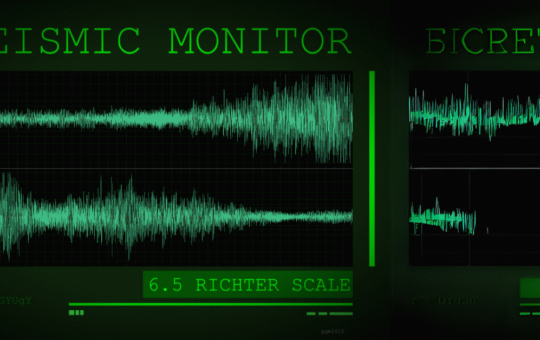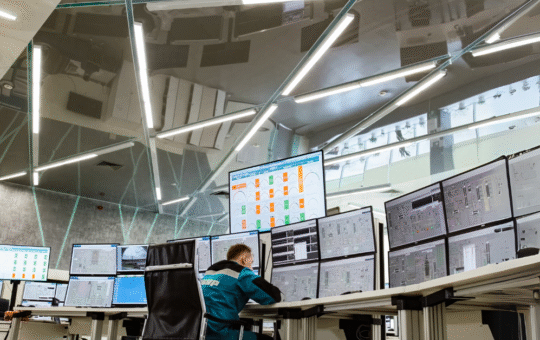
Level 4 Diploma in Carbon Capture and Storage (CCS) in the Oil and Gas Industry
- Environmental Impact: Contribute to the reduction of CO2 emissions and support sustainable practices.
- Cutting-Edge Knowledge: Understand the latest CCS technologies used to minimize carbon footprints in the oil and gas industry.
- Career Advancement: Open doors to advanced roles in environmental management, sustainability, and oil & gas operations.
- Compliance: Ensure compliance with global environmental regulations and industry standards.
- Real-World Application: Gain practical insights into the implementation of CCS projects.
- Understand the fundamental principles of carbon capture and storage (CCS).
- Analyze the processes of capturing, transporting, and storing CO2 safely and effectively.
- Evaluate the role of CCS in reducing greenhouse gas emissions in the oil and gas sector.
- Implement carbon capture technologies at various scales and stages of oil and gas operations.
- Design and plan effective CCS strategies to meet regulatory requirements and business objectives.
- Understand monitoring, risk assessment, and the long-term storage of CO2 in geological formations.
- Introduction to Carbon Capture and Storage (CCS)
- Overview of climate change and the role of CCS in greenhouse gas reduction.
- Global and industry-specific implications of CCS.
- Carbon Capture Technologies
- Techniques for capturing CO2 from flue gases and industrial processes (e.g., post-combustion, pre-combustion, oxyfuel combustion).
- Emerging technologies in CCS.
- CO2 Transport and Infrastructure
- Methods for transporting captured CO2, including pipelines and shipping.
- Technical and regulatory challenges in CO2 transport.
- Geological CO2 Storage
- The science and engineering of selecting storage sites.
- Assessing storage capacity, integrity, and long-term monitoring.
- Environmental and Risk Assessment
- Analyzing environmental impacts and managing potential risks associated with CO2 storage.
- Techniques for monitoring and verifying CO2 storage.
- Regulatory and Legal Framework for CCS
- International and regional CCS regulations and standards.
- Legal considerations regarding carbon credits, liability, and project approval processes.
- Designing and Implementing CCS Projects
- Engineering and technical aspects of planning CCS systems.
- Project management methodologies and financial considerations for CCS implementation.
- CCS in the Oil and Gas Industry
- The specific role of CCS in oil and gas operations, including enhanced oil recovery (EOR) applications.
- Case studies from the oil and gas industry demonstrating CCS success and challenges.
- Future of CCS and Global Trends
- Advancements in CCS technologies and their potential to scale globally.
- The role of CCS in achieving net-zero emission goals and meeting international climate agreements.
- Carbon Capture and Storage (CCS) Engineer
- Environmental Consultant
- Sustainability Manager
- Oil and Gas Operations Manager
- Environmental Risk Assessment Specialist
- Industry-Relevant Curriculum: Focus on CCS as applied to the oil and gas industry.
- Expert Instructors: Learn from professionals with real-world experience in carbon capture and storage.
- Hands-On Learning: Case studies, practical exercises, and project-based learning.
- Global Recognition: Qualification aligned with global environmental and energy transition goals.
- Flexible Learning Options: Designed for working professionals in the energy and environmental sectors.
Study Units
- Introduction to Carbon Capture and Storage (CCS)
- Overview of climate change and the role of CCS in greenhouse gas reduction.
- Global and industry-specific implications of CCS.
- Carbon Capture Technologies
- Techniques for capturing CO2 from flue gases and industrial processes (e.g., post-combustion, pre-combustion, oxyfuel combustion).
- Emerging technologies in CCS.
- CO2 Transport and Infrastructure
- Methods for transporting captured CO2, including pipelines and shipping.
- Technical and regulatory challenges in CO2 transport.
- Geological CO2 Storage
- The science and engineering of selecting storage sites.
- Assessing storage capacity, integrity, and long-term monitoring.
- Environmental and Risk Assessment
- Analyzing environmental impacts and managing potential risks associated with CO2 storage.
- Techniques for monitoring and verifying CO2 storage.
- Regulatory and Legal Framework for CCS
- International and regional CCS regulations and standards.
- Legal considerations regarding carbon credits, liability, and project approval processes.
- Designing and Implementing CCS Projects
- Engineering and technical aspects of planning CCS systems.
- Project management methodologies and financial considerations for CCS implementation.
- CCS in the Oil and Gas Industry
- The specific role of CCS in oil and gas operations, including enhanced oil recovery (EOR) applications.
- Case studies from the oil and gas industry demonstrating CCS success and challenges.
- Future of CCS and Global Trends
- Advancements in CCS technologies and their potential to scale globally.
- The role of CCS in achieving net-zero emission goals and meeting international climate agreements.
Upon completion of this diploma, learners will be able to:
- Understand the fundamental principles of carbon capture and storage (CCS).
- Analyze the processes of capturing, transporting, and storing CO2 safely and effectively.
- Evaluate the role of CCS in reducing greenhouse gas emissions in the oil and gas sector.
- Implement carbon capture technologies at various scales and stages of oil and gas operations.
- Design and plan effective CCS strategies to meet regulatory requirements and business objectives.
- Understand monitoring, risk assessment, and the long-term storage of CO2 in geological formations.
The Level 4 Diploma in Carbon Capture and Storage (CCS) in the Oil and Gas Industry is ideal for professionals in the energy, environmental, and oil and gas sectors who wish to specialize in the crucial field of carbon capture and storage. This course is suited for:
Carbon Capture and Storage (CCS) Engineers
Engineers involved in designing and implementing carbon capture systems, responsible for ensuring efficient and safe CO2 capture, transportation, and storage processes.
Environmental Consultants
Professionals advising organizations on sustainability practices, carbon management, and compliance with environmental regulations, particularly focusing on reducing greenhouse gas emissions in oil and gas operations.
Sustainability Managers
Individuals responsible for developing and implementing sustainability initiatives, aiming to integrate CCS solutions into corporate environmental strategies and achieve net-zero emission goals.
Oil and Gas Operations Managers
Managers overseeing oil and gas production, exploring ways to integrate CCS technologies into operations to reduce environmental impacts and enhance resource recovery through enhanced oil recovery (EOR).
Environmental Risk Assessment Specialists
Specialists assessing and managing the risks associated with CO2 storage and ensuring the environmental integrity of long-term CCS projects in geological formations.
Energy Transition Professionals
Professionals working on the transition to low-carbon energy solutions, looking to specialize in CCS technologies and their application in reducing emissions in high-impact sectors like oil and gas.
Project Managers in Energy and Environmental Sectors
Individuals leading CCS projects and looking to deepen their knowledge in project design, risk management, and regulatory compliance.
Our assessment process is designed to ensure every learner achieves the required level of knowledge, skills, and understanding outlined in each course unit.
Purpose of Assessment
Assessment helps measure how well a learner has met the learning outcomes. It ensures consistency, quality, and fairness across all learners.
What Learners Need to Do
Learners must provide clear evidence that shows they have met all the learning outcomes and assessment criteria for each unit. This evidence can take different forms depending on the course and type of learning.
Types of Acceptable Evidence
Assignments, reports, or projects
Worksheets or written tasks
Portfolios of practical work
Answers to oral or written questions
Test or exam papers
Understanding the Structure
Learning outcomes explain what learners should know, understand, or be able to do.
Assessment criteria set the standard learners must meet to achieve each learning outcome.
Assessment Guidelines
All assessment must be authentic, current, and relevant to the unit.
Evidence must match each assessment criterion clearly.
Plagiarism or copied work is not accepted.
All learners must complete assessments within the given timelines.
Where applicable, assessments may be reviewed or verified by internal or external quality assurers.
Full learning outcomes and assessment criteria for each qualification are available from page 8 of the course handbook.
Top Courses
Related Courses
Let's Get in touch
Deleting Course Review
Course Access
This course is password protected. To access it please enter your password below:



